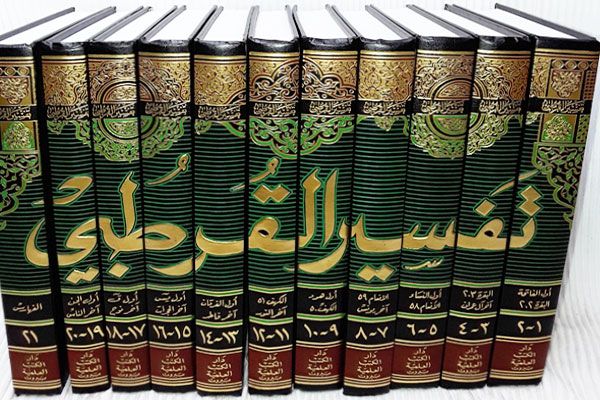He was a gentle soul, someone whom others could turn to in rough times. He was known by all as someone who advised others with wisdom and the best of words. He cared deeply for all people and his mood did not affect the way he treated them; even if he was angry, he dealt with others in a fair and just manner. His words are a testimony to how he led his life. He said, “Keep to gentleness and avoid harshness and coarseness. Gentleness is not found in anything without adorning it, and is not withdrawn from anything without shaming it” (Muslim). This gentle, caring man was none other than Prophet Muhammad, peace be upon him.
With all the conflict going on in the world and the brutality committed by some in the name of Islam, the question arises in people’s minds: What does Islam truly say about anger, violence, and killing? We can take a closer look at the last Messenger of Allah, the torchbearer of an Islamic way of life, to see who he was and what his authentic message conveys.
Allah (SWT), Himself, describes the Messenger (pbuh) in the Quran: “It is a great mercy of God that you [O Prophet] are gentle and kind towards them; for had you been harsh and hard-hearted, they would indeed have broken away from you” (Quran 3:159). The Prophet was patient, tolerant, and forgiving even when he was being harassed because of the message he proclaimed. His guidelines about war indicate that only actual oppressors and aggressors may be fought. Killing outside of proper Islamic guidelines is prohibited: “…if anyone slays a human being, unless it be [in punishment] for murder or for spreading corruption on earth, it shall be as though he had slain all mankind; whereas, if anyone saves a life, it shall be as though he had saved the lives of all mankind” (Quran 5:32).
Prophet Muhammad (pbuh) said, “The best of you are those who are slow to anger and swift to cool down…Beware of anger, for it is a live coal on the heart of the descendants of Adam” (Al-Tirmidhi)
Yet there are many Muslims today who exhibit a harsh and merciless disposition. The political realities of the world and the social injustices that plague many Muslim societies are very real and require redress. But the Muslims who allow their anger and frustration to push them to the committing of atrocities, including killing civilians, forcing conversions to Islam, destroying houses of worship, and more, are betraying the religious principles invoked as their bedrock of faith and dedication. They have also forsaken the teachings of the man they espouse as the embodiment of wisdom and righteousness.
The anger that boils up inside a person can lead him to do things he may regret later on. Anger, whether it is due to personal relations or political circumstances, is meant to be regulated. In fact, Allah (SWT) details characteristics of righteous people so that we will try to acquire those traits: “… [those] who spend generously [in the way of Allah], whether they are in prosperity or in adversity, who control their anger and forgive other people, for Allah loves those who do good” (Quran 3:134). While anger is a natural emotion that at times of frustration or annoyance or injustice arises within any human being, the righteous act on principle, not anger, and do so with prudence and good judgment.
Prophet Muhammad (pbuh) said, “The best of you are those who are slow to anger and swift to cool down…Beware of anger, for it is a live coal on the heart of the descendants of Adam” (Al-Tirmidhi).
The image of a hot coal on the flesh of the heart perfectly emphasizes the fact that anger has the potential to harm if not destroy us. This is why, as believers, it is essential to control our anger so that we do not fall into hurting ourselves or others. That is integral to attaining a pious character, a core tenet of the Quran and central to what the Prophet preached. A beautiful example of the Prophet (pbuh) practicing exactly what he preached is given to us by Anas (may Allah be pleased with him), who was the helper of the Prophet. He said, “I served Allah’s Messenger for ten years and he never said to me, ‘Shame on you’ or ‘Why did you do such-and-such a thing?’ or ‘Why did you not do such-and-such a thing?’” (Bukhari). What this tells us is that the Prophet did not blame people or seek out their faults. He practiced tolerance and patience in private as in public. He chose not to let small things annoy him or the shortcomings of others to compromise his self-governance. The hadith also describes how kind-hearted the Prophet was, that he never shamed or belittled anyone, but treated everyone with dignity and respect.
Harshness is not the way of a sincere Muslim. The way of the Muslim is the sunnah of the Prophet (pbuh), characterized by love, mercy, tolerance, forgiveness, generosity, and full composure, even in the midst of fighting for fairness and social justice. May Allah (SWT) help us all to follow the beautiful ways of Allah’s Messenger, peace be upon him.





